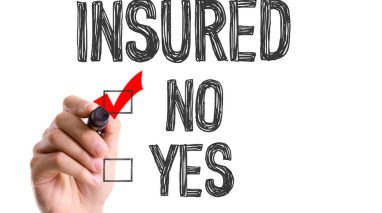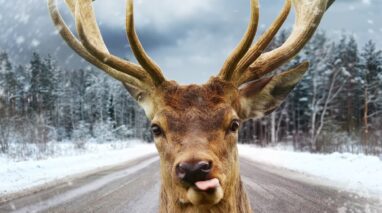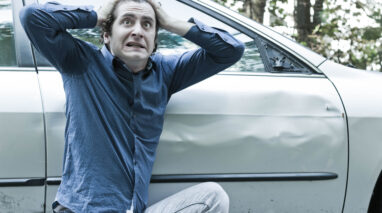Blog
What Happens After Your Car Hits an Animal in Seattle?
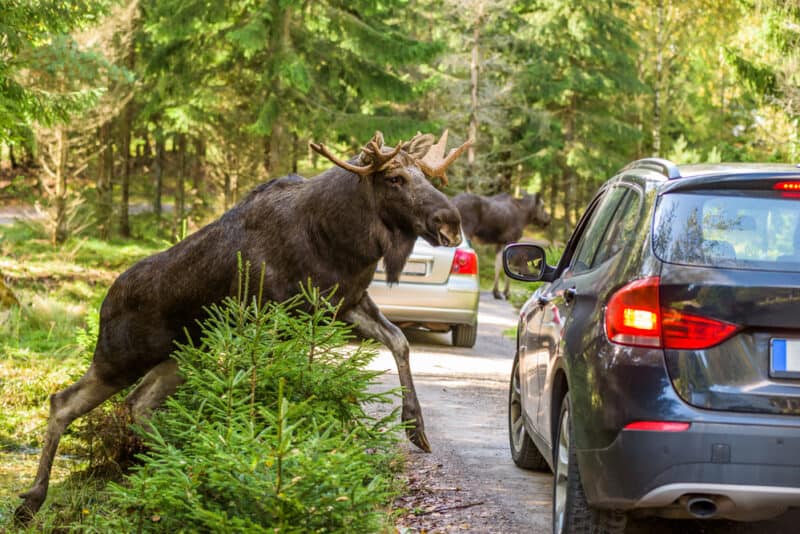
Seattle, Washington drivers have even more reasons to stay alert and make sure they have full coverage car insurance than motorists elsewhere. The weather here can get challenging, there’s stop-and-start traffic flow, and the main highways can get pretty congested.
Then there’s the wildlife. Not right in the heart of the city, but as you move away from it, you can run (literally) into deer, elk, mountain goats, bears, and other large animals.
What happens if you run into an animal with your car? What’s your responsibility? How can you be sure your car insurance company will pay for the damages? Your mind will probably be racing with questions, so we’ve put together a few answers to get you through those tough few hours after hitting a large animal with your car.
Do I Have to File a Police Report if I Hit an Animal in Washington?
It depends on the circumstances. Let’s handle the easy answer first. The unpleasant reality is that roadkill is pretty common. Squirrels, skunks, gophers, beavers — they get hit all the time, and no one files a police report. That’s because there’s usually no damage (except to the critter) and no impact on society.
But there are several possible reasons to get the police involved if your collision is with another animal. If it’s damaged and disabled your car, you’ll want to try to get a police report to make your insurance claim easier. And if you’ve hit a large animal, it might be dead or dying right in the way of traffic.
And finally, if anyone in your vehicle has been injured in the collision, you should definitely involve the authorities.
What Steps Should I Take After a Collision With a Large Animal in the Seattle area?
Depending on your circumstances, when the unexpected happens, do the following, Remember that a large, injured animal may attack, so do not put yourself or anyone else in a dangerous position until you are sure it is safe.
Get Out of Traffic
That’s rule one. If your vehicle is still operable after your collision, pull it to the side of the road or as far out of traffic as possible.
Keep Everyone Safe
Ask whether your passengers are okay. If not, call 911 immediately. If they aren’t hurt, get them safely out of the vehicle and away from traffic flow if that’s possible. Everyone can stay in the car if it’s out of the way and there’s little traffic on the road.
Call the Police
Place a 911 call to alert local authorities of your accident. Make sure the 911 operator knows that the animal is clogging a lane of traffic if that’s the case. That might make you a higher priority. If no one is hurt and you’re not in congestion, and depending on other factors, the department might tell you that they won’t send a patrol car. Otherwise, wait for officers to arrive.
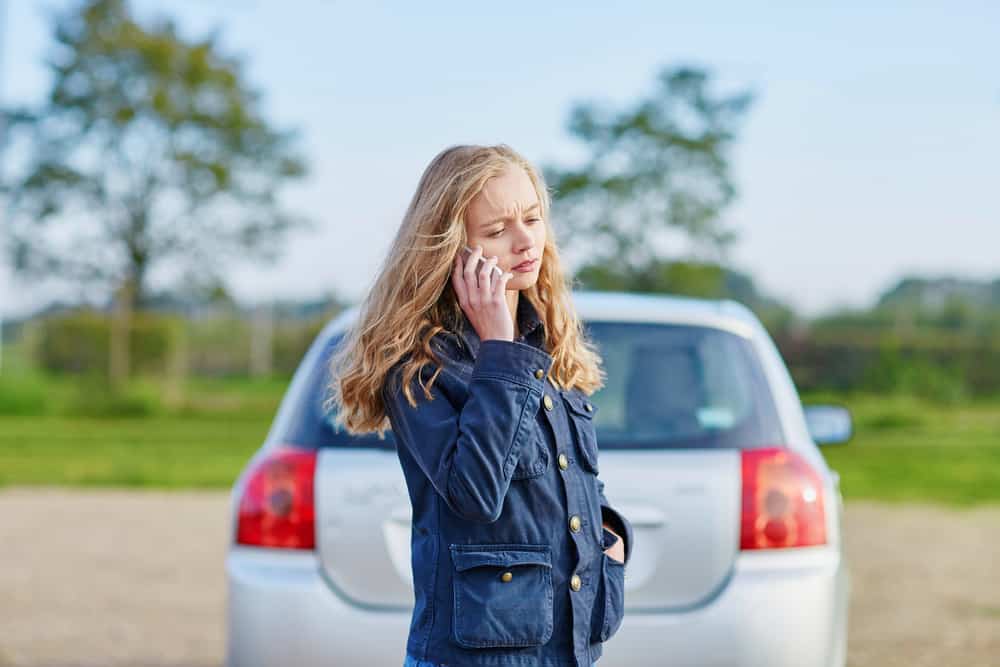
Collect Evidence
While awaiting help, take photos of the accident from various angles. Be sure to include the animal involved if it hasn’t wandered off, injured. Get close-up shots of the damage to your vehicle.
Get a Police Report
If a patrol car does show up, you’ll get a police report. This is an important document to have if you can get it because it will make it faster and easier to file your insurance claim. But many claims of this type are filed without a police report, so don’t worry if you can’t get one.
Drive Away, or Call for Roadside Assistance
Once you contact the police and you’ve dealt with your immediate problems, you can drive away or have your vehicle towed. If you have roadside assistance, you can call for a free tow to the nearest garage.
File Your Claim
Call your insurance agent as soon as possible after the immediate threat has been put behind you. Your documents, including photos and a possible police report, will support your claim. But if there is no police report and the injured animal wanders off, your insurance company might send a claims adjuster to examine your vehicle. For that reason, don’t wash off possible evidence in the form of animal hair or blood until you know your claim will be covered.
Contact Wildlife Authorities
You might still have a large dead animal that should be removed from the highway. Or perhaps it’s injured and in pain. Here’s who you should contact in King County to get the issue resolved. It’s the responsible thing to do.
Make Sure You Have Comprehensive Coverage Car Insurance in Seattle
It’s certainly cheaper to only carry liability car insurance. That’s the minimum amount of legal coverage, and it costs less than comprehensive and collision coverage. But as the old saying goes, you get what you pay for.
Liability coverage doesn’t cover your own vehicle. It only pays for the damage inflicted on other people and property if you’re at fault for an accident. Your own vehicle? That’s your problem.
If you hit a deer, elk, or other large animals, the damage could be extensive. It’s estimated that the average cost for vehicle damages due to wildlife collisions is $4,135. That amount comes out of your pocket if your car insurance doesn’t cover it. Would that be a financial hardship? It would be for many of us.
Also, ask your insurance agent about adding roadside assistance, along with other full-coverage options, to your policy. You’ll be glad you did if your vehicle ever gets disabled in a collision with wildlife. (Or runs out of gas, gets a flat tire, won’t start due to a dead battery, or leaves you stranded for countless other reasons.)
By the way, it’s legal to salvage dead deer or elk after a collision in the Seattle area. So if you have a truck and know how to dress wild game, maybe there’s a somewhat happier ending to this tale after all.
Find Affordable Car Insurance Quotes in Seattle Today
Call Vern Fonk Insurance at (888) 455-8276 to find the most affordable car insurance for your peace of mind. You can also visit an agent at your nearby Vern Fonk Insurance office location in Seattle or get a quick quote online.
